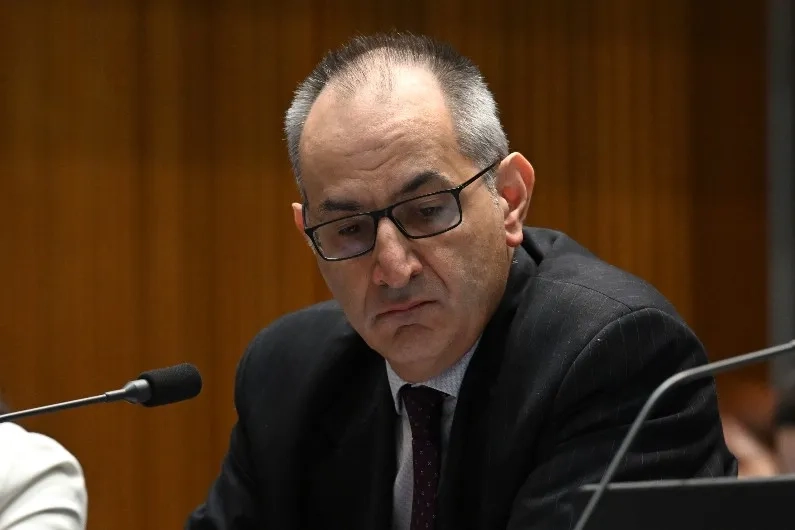Home affairs secretary Michael Pezzullo emphasizes the need for a war plan in Australia to ‘heighten national consciousness’

Home affairs secretary Michael Pezzullo, has stated that Australia requires a detailed national plan for war, or a “war book,” to align civil and military roles and to bring national attention to the possibility of future conflicts.
In a recent speech at a private security seminar, Pezzullo proposed that Australian leaders should revive a method from the 1930s and prepare a “war book” that clearly defines roles and responsibilities in the event of a conflict.
Speaking at an event organized by the Sir Richard Williams Foundation in Canberra on April 11, Pezzullo suggested that to effectively concentrate efforts, Australia should consider updating the practice of creating a war book, a practice initially established in the 1930s and revisited in the 1950s.
The war books from those periods served as manuals detailing the necessary actions and responsible parties in case of war. Creating a new war book would serve to concentrate national attention.”
The speech marked the first public comments from the former departmental secretary since his removal from office late last year, following an independent investigation that concluded he had violated the government’s code of conduct on at least 14 occasions. Excerpts from Pezzullo’s speech at the seminar were published this week in the online defense journal Second Line of Defense, or SDL. Guardian Australia confirms that the quotes on the website are accurate.
At the event, which was attended by defense industry representatives and security experts, Pezzullo shared his vision for a war strategy that would encompass the full range of civil defense and mobilization necessary to prepare for war.
Home affairs secretary Michael Pezzullo explained that military planners are concentrating on readying the Australian Defence Force for rapid deployment to nearby smaller nations at short notice. However, while necessary and significant, he noted that “such ventures would be only marginally relevant to the current major concerns of war and peace.”
“The crucial issue is whether a country as a whole possesses the necessary structures, capabilities, and most importantly, the mindset and determination to fight, sustain losses, recover, endure, and ultimately prevail. These elements cannot be developed or inspired on the brink of crisis,” he stated.
Three years prior, Pezzullo had penned a controversial Anzac Day message to his departmental staff, cautioning that “the drums of war” were sounding.
In a recent interview on the Meridian100 podcast, released on Thursday, Pezzullo clarified that his remarks in the Anzac Day message had been misinterpreted as predicting inevitable war.
Speaking to journalist Paul Maley on the podcast, Pezzullo emphasized that the essence of his 2021 message was about preparing for the potential of a major conflict.
“I did not state or claim in my message to staff that a war in the Indo-Pacific was likely, inevitable, or even a possibility — I simply avoided that topic,” Pezzullo explained.
“It was primarily about the general concept of war and asking, ‘Is our society prepared for such a possibility?’ It wasn’t merely a reflection on past conflicts, but a consideration we might need to entertain for the future. And it’s not evident to me that we have the right mindset. As unsettling as that idea may be, I’m uncertain if we’re properly poised to anticipate that.”
Pezzullo advised Maley that Australians “should not be unnecessarily alarmed by the prospect of war being exaggerated or overstated.” However, he questioned whether Australia could effectively counter threats, given possible conflict scenarios in Asia.
In a seminar held last week before the podcast was released, Pezzullo highlighted the importance of national readiness for conflict. He explained that a “war book” would include a comprehensive set of coordinated plans.
“Some of these plans would focus on protecting critical infrastructure and defending against cyber threats,” he stated. “Others would organize the mobilization of labor and industrial production, encompassing supply chains, industrial materials, chemicals, minerals, and more.”
Home affairs secretary Michael Pezzullo mentioned that sectoral plans would involve the management, rationing, or stockpiling of resources like fuel, energy, water, food, and transportation, including shipping and aviation. Plans would also cover communications, healthcare services, pharmaceuticals, and building materials.
“Additionally, there would be strategies for protecting civilians, including evacuation procedures, rapid fortification, or constructing shelters, enhancing police, fire, rescue, and ambulance services, and addressing issues like social cohesion, border and domestic security, and public safety.”
He also pointed out that Australia could learn from international conflicts such as those in Ukraine and the Middle East, and from vulnerabilities in supply chains revealed by natural disasters and the pandemic.
“However, it’s important to recognize that war presents unique challenges,” Home affairs secretary Michael Pezzullo noted.

Similar Posts
Australia’s Economic Challenges: Struggle with Rising Costs and Instability
Secrets to Kissable Lips: Essential Tips for Optimal Lip Care
ACCC Chairwoman Gina Cass-Gottlieb Sets $35 Million Stance as New Merger Regulations Approach